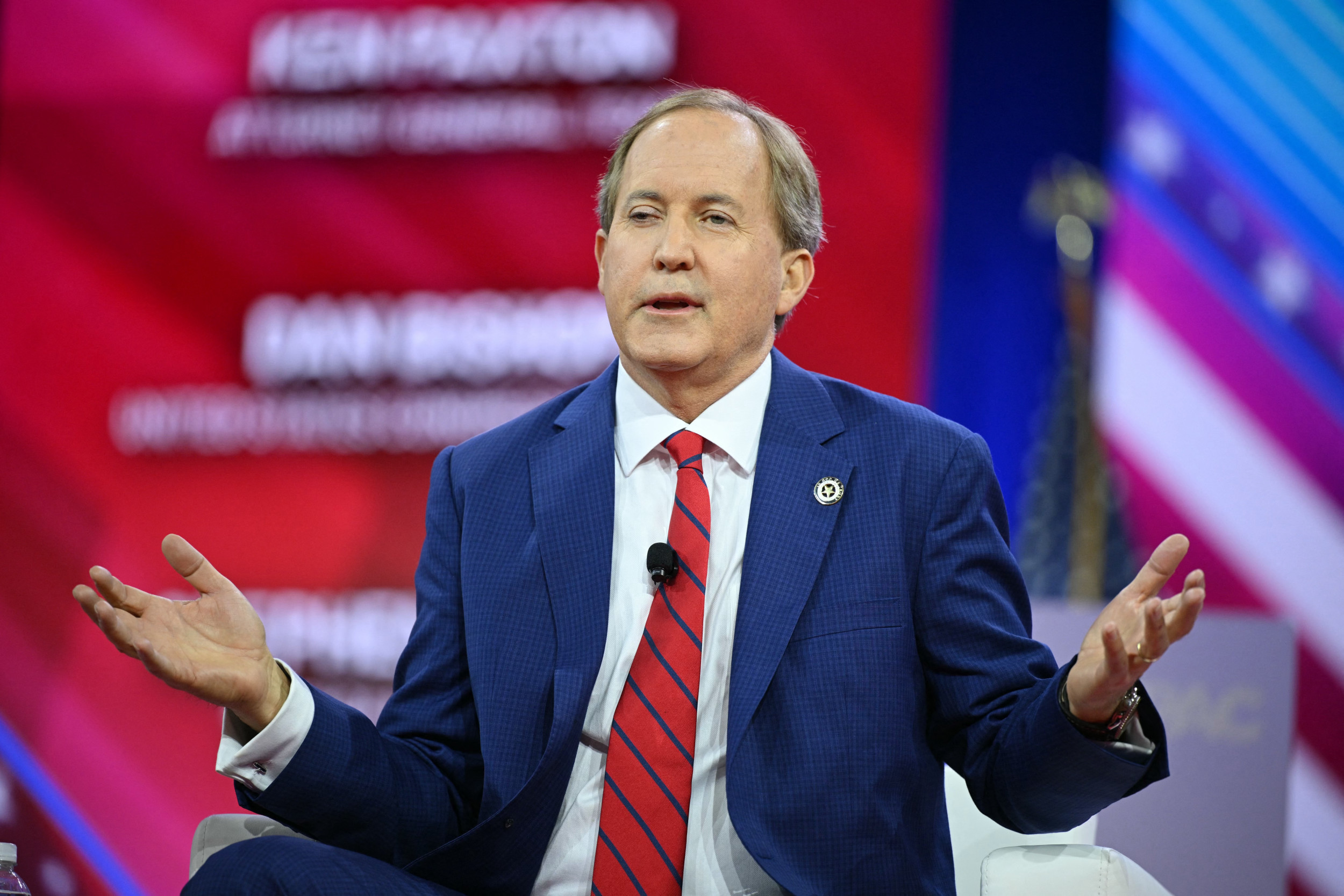A federal court has overturned a part of Texas election law that critics claimed enabled Attorney General Ken Paxton to “suppress” Hispanic and Latino voters.
In a ruling on Saturday, U.S. District Judge Xavier Rodriguez blocked enforcement of the canvassing restrictions outlined in Senate Bill 1, deeming it “unconstitutionally vague” and in violation of the Fourteenth Amendment.
The new law aimed to tackle alleged vote harvesting, which involves collecting and delivering completed absentee and mail-in ballots on behalf of voters. Under these restrictions, anyone offering vote harvesting services for pay would face a third-degree felony charge, with potential volunteers and campaign workers risking up to 10 years in prison for ballot collection.

Mandel NGAN / AFP/Getty Images
Paxton, a Republican, faced accusations of leveraging this law to intimidate voting rights activists through raids on their homes, allegedly aiming to suppress Latino voter turnout, which is pivotal in upcoming elections.
Gabriel Rosales, state director of LULAC (League of United Latin American Citizens), claimed in August that Paxton’s raids were intended to manipulate the electoral process in favor of his political allies by intimidating Latino voters.
Judge Rodriguez pointed out the “widespread confusion” surrounding key terms in the canvassing law, such as “compensation” and the concept of being in the “physical presence” of an absentee ballot. He noted that the ambiguity left many unsure of how to comply without risking severe penalties.
The ruling has garnered praise from advocacy groups and legal experts alike. LULAC celebrated it on X (formerly Twitter), stating, “Today’s decision dismantles a unconstitutional statute used to intimidate Hispanic voters and their organizers.”
Norm Eisen, who was involved in the House Judiciary Committee during Trump’s first impeachment, called it the “most important election news” of the weekend, asserting that the courts are standing against efforts targeting Hispanic and migrant voters.
The ACLU of Texas also hailed the ruling as a victory for voting rights in the state and for organizations working to ensure accessible elections.
